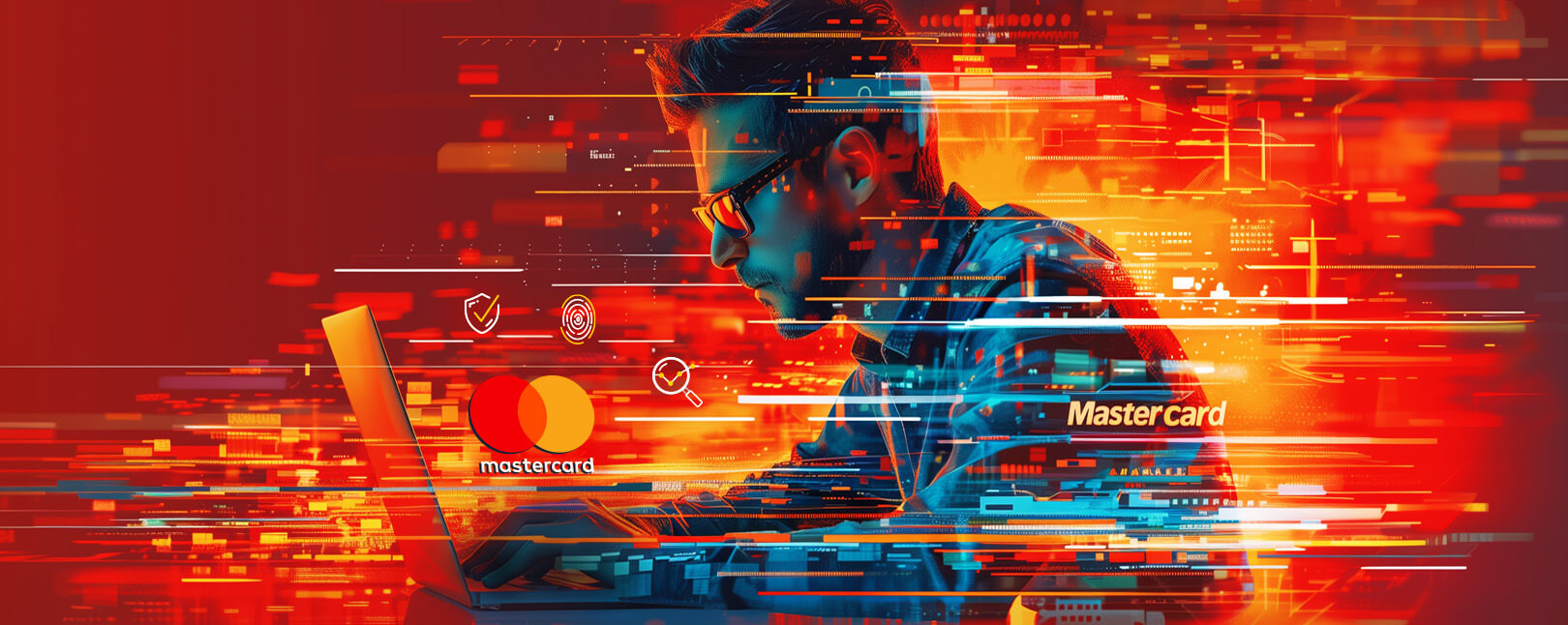What Mastercard First-Party Trust Program Can Do to Stop Chargeback Abuse
Mastercard has recognized that first-party chargeback misuse — what we generally call “friendly fraud” — claims make up three-quarters of all chargebacks filed under the fraud reason code.
For those unfamiliar, friendly fraud is when a cardholder or issuer makes a claim of fraud, but in fact, they have genuinely participated in the transaction. This can be a deliberate claim, or it could be due to a simple mistake. It could also happen because of how a card issuer has interpreted the cardholder’s claim.
The Mastercard First-Party Trust program is being introduced to help merchants defend themselves more effectively when they suspect a fraud chargeback is actually a case of friendly fraud. The aim of this initiative is to simplify the dispute resolution process in as few hoops to leap as possible.
Recommended reading
- Mastercard Dispute Resolution: What You Need to Know
- What is the Mastercard Chargeback Threshold?
- Mastercard Chargeback Time Limits: The 2024 Guide
- MasterCard DAF: The Dispute Administration Fee, Explained
- Can Mastercard Refund Authorization Mandate Stop Disputes?
- Here's the Rundown on Mastercard Chargeback Fees for 2024
What is the First-Party Trust Program?
- First-Party Trust
The First-Party Trust program is an initiative by Mastercard designed to streamline and enhance the dispute resolution process. The program facilitates better data sharing and merchant verification, with the aim of reducing fraudulent chargebacks and improving trust among merchants, cardholders, and issuers.
[noun]/fərst • pär • dē • trəst/
First-Party Trust is similar to Compelling Evidence 3.0 from Visa in some ways. Using a few key data elements, you can show a card issuer that the cardholder has made the transaction, proving that an invalid “fraud” claim is false.
For example, let’s say a customer files a chargeback, claiming a purchase was fraudulent. This claim might’ve qualified for a chargeback using reason code 4837. But, the customer has bought something from the same merchant before, didn’t report any fraud, and key data elements like device information, delivery information and proof of identity match the transaction in question. In that case, the claim can be invalidated.
Up until now, the merchant could only present this evidence in an ‘advisory’ way, and a cardholder or issuer could generally ignore it. Now, though, a reason code 4837 chargeback will be disallowed if the merchant can meet the transaction data requirements.
As of this writing, Mastercard First-Party Trust will go live in October 2024 for US domestic transactions.
First-Party Trust is Mastercard’s answer to the increasing complexity and volume of digital transactions, which have led to a rise in fraudulent chargebacks and disputes. Traditional dispute resolution processes often lack sufficient data, making it difficult for issuers to accurately assess the legitimacy of disputes. This inefficiency results in higher operational costs for merchants and increased frustration for cardholders, highlighting the need for a more transparent system.
First-Party Trust addresses these challenges by enhancing data sharing between merchants and issuers. It provides comprehensive transaction details that help distinguish between legitimate and fraudulent disputes.
Requirements for Mastercard First-Party Trust
To take advantage of the Mastercard First-Party Trust program, you need to meet a few important requirements.
First, you'll need strong data management and fraud detection systems. These systems should be able to capture and securely store detailed transaction information and share it in real time with issuing banks.
You’ll also need to enroll in Consumer Clarity. This platform acts as a secure channel for sharing enhanced transaction data with issuing banks when a dispute arises. By using Consumer Clarity, you can quickly and accurately provide the necessary details to resolve disputes.
We should note that the First-Party Trust program is an opt-in program. It only applies to participating merchants.
What Data Points Can be Used?
You’ll need to provide data from at least two historic transactions which were not reported as fraudulent. These transactions must have been undertaken at least 121 days — but no more than 365 days — from the date of the disputed transaction. This is because there could be other disputed, fraudulent transactions within the 120-day chargeback time frame.
You must provide three data elements in total. First, you must provide one piece of evidence from each of the following two categories:
- Device Fingerprint
- IP Address
- Shipping Address
- Email Address
Your third data element can be an unused element from one of the above categories. For example, you may provide the cardholder’s device fingerprint and IP address, as well as the shipping address. You also have the option to provide one of the following items as your third piece of evidence:
Additional Factor
- Login ID
- Telephone Number
- Device Location
- Device Name
- Shipping / Billing Address
- IP Address
- Email Address
The key difference here is in how you can participate. With Visa CE 3.0, you can share the data either pre-chargeback or post-chargeback as part of representment. With the Mastercard First-Party Trust program, you’ll need to register and make the data available to Mastercard to use in this initiative.
How Will This Impact Chargeback Management?
Mastercard are amending their rules and standards to ensure that the liability position of the card issuer is reflected where the merchant provides the First Party Trust evidence.
This program, along with the Visa CE 3.0 proposition, represents the first foray into using cardholder and merchant data together to resolve fraud claims. The main constraint of these initiatives is the availability of the data and whether merchants can easily access it and transmit it for processing.
To date, we have not seen much uptake with the Visa CE 3.0 program, so we’ll be watching the Mastercard First-Party Trust scheme with great interest. It’s definitely a step in the right direction. But, time will tell whether it can stem the massive growth in friendly fraud the industry is currently seeing.
Advantages of the First-Party Trust Program
Mastercard First-Party Trust offers several advantages similar to those provided by Visa. As I mentioned above, the platform promotes transparency and accountability by ensuring that all parties adhere to stringent guidelines. Ideally, this will create a more level playing field, as both issuers and acquirers are held to the same standards when evaluating chargeback disputes.
To illustrate further, here’s what Mastercard First-Party Trust can do for you:
Overall, the Mastercard First-Party Trust program is a good tool for merchants and financial institutions. It should help to better handle disputes by promoting transparency, reducing fraud, and protecting revenue. That said, it’s important to recognize that it may not be a one-size-fits-all solution for every transaction scenario.
How to Participate in the First-Party Trust Program
Merchants can participate in First-Party Trust through two different channels.
Merchants have the option to participate through one — or both — of the above channels.
As for integration: as a merchant (or merchant partner), you can participate in the First-Party Trust program through Identity Check Insights. To do this, you connect using your own 3DS server or the 3DS Smart Interface API. You also have the option to integrate through the Ethoca Consumer Clarity Merchant Transaction API.
Again, you can choose one of these methods, or go with both. In the former case, you transmit data to Mastercard, who stores this data on your behalf. With the latter case, Mastercard requests evidence via the API in the event of a dispute.
In either case, Mastercard then cross-references the data from the disputed transaction with two prior transactions. You’re protected as long as First-Party Trust confirms the evidence.
How Should Merchants Adjust for the First-Party Trust Program?
Participating in First-Party Trust will hopefully improve and streamline your ability to manage and prevent chargebacks. With that in mind, here are a few tips to help you maximize the benefits of the program:
#1 | Get Your Data Ready
Make sure your transaction data is well-organized, accessible, and can be shared in real time. High-quality, easily accessible data is crucial for effectively contesting chargebacks and proving the legitimacy of your transactions. Invest in reliable data management systems to streamline this process.
#2 | Evaluate Your Current Situation
Before registering for First-Party Trust, take stock of how many chargebacks you receive and identify patterns. Knowing the frequency and causes of your chargebacks will help you better prepare and leverage the program’s benefits. This evaluation will also highlight areas where the program can make the most significant impact.
#3 | Leverage Chargeback Intelligence
Use chargeback intelligence tools — such as those provided by Chargebacks911® — to boost transaction and fraud monitoring. Integrating this intelligence data into your front-end systems can help you make better decisions and prevent first-party fraud at the source. This proactive approach can drastically reduce the incidence of chargebacks.
Following these tips will help you effectively utilize the Mastercard First-Party Trust Program to reduce chargebacks, protect your revenue, and enhance overall operational efficiency. However, no program, however comprehensive, can fully protect your business from chargebacks on its own.
Your best best is to adopt a multilayered strategy that addresses the root causes of friendly fraud, prioritizes dispute resolution, and takes advantage of chargeback alerts. This will help stop illegitimate chargebacks of every variety— not just those related to cut-and-dry fraud. Click below to learn more.
FAQs
What is the First-Party Trust program?
The First-Party Trust rogram is an initiative by Mastercard designed to streamline and enhance the dispute resolution process, similar to Visa's Compelling Evidence 3.0. Focusing on better data sharing and merchant verification aims to reduce fraudulent chargebacks and improve trust among merchants, cardholders, and issuers.
What are First-Party Trust program requirements?
To be part of First-Party Trust, you must have strong data management systems to capture and share detailed transaction information in real-time and enroll in Consumer Clarity to securely communicate this data during disputes. You’ll also need to make sure your transaction data includes specific details such as billing and shipping addresses, device information, and customer credentials.
Will the First-Party Trust program stop chargebacks?
Yes.. and no. First-Party Trust can help reduce chargebacks by providing enhanced transaction data and improving dispute resolution. But, it won't stop all chargebacks. Friendly fraud involves intentional misuse of the chargeback process by cardholders, making it challenging to completely eliminate.















